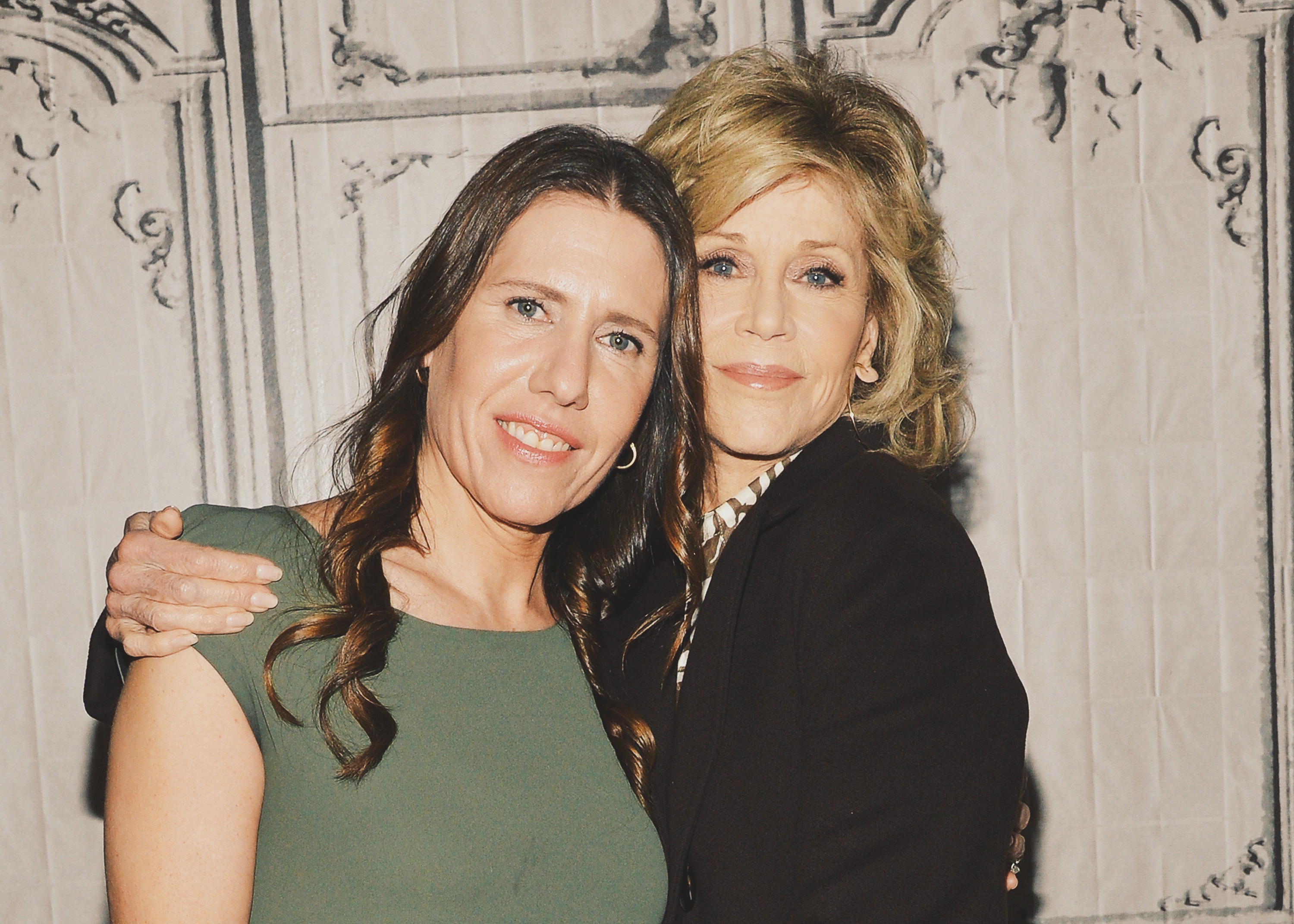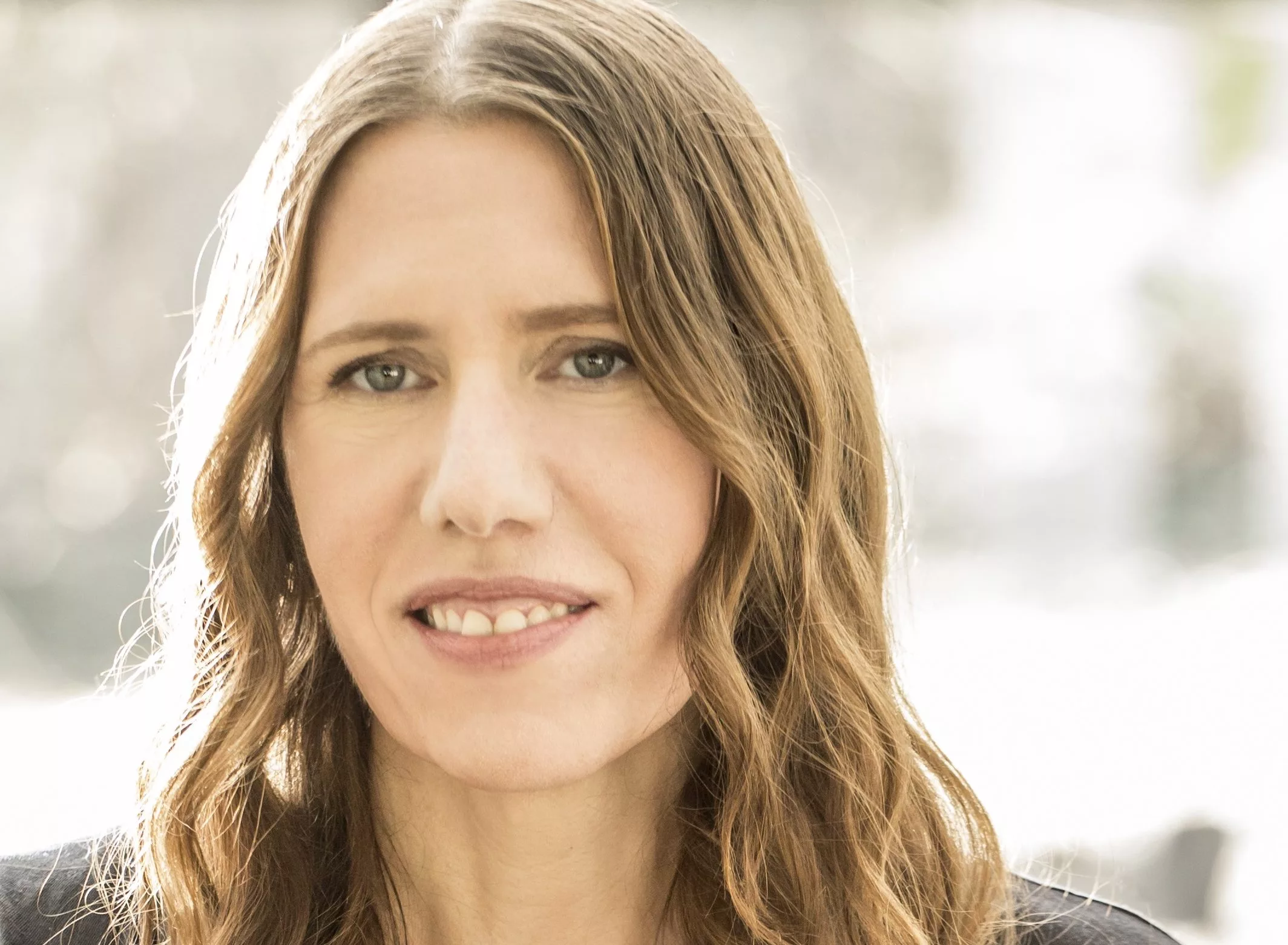In 1992, the National Organization for Women convened an abortion rights march that brought approximately 750,000 people to Washington, DC. At the time, Marianne Schnall was a young reporter for Us Weekly, and was used to interviewing celebrities on the red carpet about their latest movie releases. At the march in DC, as she spoke to some of these same influencers about a cause they cared about, something clicked for her: this was way more interesting.
Over the following decades, she established a rewarding niche as a journalist, interviewing powerful women about the issues they cared most about and founding Feminist.com along the way. Her conversations with leaders such as Eve Ensler, Gloria Steinem, Oprah Winfrey, Maya Angelou, Natalie Portman, and many others have appeared in dozens of national media outlets and in two books, “Daring to Be Ourselves: Influential Women Share Insights on Courage, Happiness, and Finding Your Own Voice” (2010) and “What Will It Take to Make a Woman President? Conversations About Women, Leadership and Power” (2013).
After Beyoncé publicly recommended “What Will It Take to Make a Woman President?” Schnall realized that the brand had big potential. She’s now launching What Will It Take as a website and movement to ignite and empower a new generation of female leaders. Her goal is to create a hub for promoting women’s leadership across sectors, from media to philanthropy and from finance to politics.
We spoke with Schnall about her vision for What Will It Take and about the leadership lessons she’s picked up over the years.
Tell us the story behind What Will It Take, both the book and the movement.
Marianne Schnall: After Barack Obama was elected president, I was talking with my eight-year-old daughter, Lotus, about how wonderful it was having our first African-American president. She asked why we’ve never had a woman president. That question led to a journey of exhaustive interviews, trying to get to the heart of why we don’t have more women leaders. Women hold less than 20 percent of top business leadership positions.
We absolutely need women in politics, in finance, in media. If you want to run for office, we need you. But also just in our own communities, in our lives as citizens, we need women to rise up as positive forces for change in the world. Every woman is a leader and has a valuable voice. Oprah talked about how we sometimes think of being a leader as a particular job, but that you can be a leader in so many different ways: in your community, as a citizen voting, in your kids’ school, whatever. A lot of people feel if they’re not being a “traditional” leader, it doesn’t count. Even if you just speak out against a sexist or racist comment, that’s leadership.
It’s a global movement that has never been more necessary. The thing I always stress is how interconnected the status of women is with so many issues that face our planet, whether it’s violence, poverty, war, the environment. If we had more equity, it would transform our world in important and powerful ways.
It’s not just a women’s issue. This is a human issue. As much as I talk about women’s leadership, we need men to be part of this movement, and men increasingly want to be. They’re showing up at events. They’re trying to be our allies. They understand that we would benefit from equality in the workplace and politics and in the world. But men, too, suffer from all of the destructive gender stereotypes that limit their abilities to be who they are. We need men to be able to embrace their full circle of qualities, including their feminine ones, and these values that have not been as valued around cooperation, caring, compassion. These are not just embodied in women; we all have these qualities. We need to help men be their full selves and break out of their destructive gender stereotypes and roles.

Schnall (left) with actor and activist Jane Fonda in 2015.
You’ve spent a lot of time talking with famous, powerful people about the things they value deeply. What has that taught you about the place of purpose and mission in leading a meaningful life?
MS: When I talked to celebrities on the red carpet, I’d have my little autopilot questions and they would have their rehearsed answer. When I started interviewing these celebrities about causes they were passionate about, it was a completely different experience. It’s amazing how much their whole spirit lights up.
I interviewed Meryl Streep at a harvest festival about an organization she co-founded called Mothers & Others for a Livable Planet, which works to fight pesticide use in foods. I think she might have been wearing overalls, and she had no makeup on. I had interacted with her in a different capacity, and now I felt like I was connecting with her as a real person. She came alive when she was talking about something she felt so connected to. Again and again that has happened.
I remember interviewing Natalie Portman for Entertainment Weekly. She was the global ambassador for an organization called FINCA International that promotes micro-lending to women in developing countries. She had done a lot of traveling and working with them. I asked her, “How does it feel to know you’re making such an impact on these women’s lives?” She immediately turned it around and said, “Oh no, I feel like they’re doing more for me than I’m doing for them.” She talked about how it had become her deepest, most fulfilling work.
In our society, we’re often taught that being rich and famous is the pinnacle of goals. For the types of public figures I’ve interacted with, what’s ironic is that they get to that place of being rich and famous and they find it’s actually not that fulfilling. What winds up being the most fulfilling is being able to use their visibility to give back to a cause or an organization. The word “activist” sounds a little exhausting, like another thing to do. Actually, it’s something nurturing and fulfilling that brings you deep reward.
That would be a great thing for us to get out to the masses: skip the striving for being rich and famous and realize that some of the most deeply nourishing, fulfilling work is being connected to a like-minded community working together towards positive change. It’s such a powerful thing for us to remember.
From all these interviews you’ve done, what have you learned about what makes a good leader?
MS: What’s true for many of the women leaders I’ve spoken to is you can’t be an effective leader and always try to please everybody or be popular and liked. First, it’s impossible. Second, then you’re not true to your voice and vision.
In the interview I did with Sheryl Sandberg, she talked about how the more successful a woman gets, the less liked she is, whereas a man doesn’t have that same likability hit. You have to develop a tougher skin because being a woman leader particularly, you often find yourself the subject of criticism, attacks, or unfair media coverage. For women leaders today, growing your self-esteem and your confidence and realizing and honoring that your voice and what you think counts seems to be important.
We also want women to feel like they can bring their authentic selves or authentic voices to their leadership. Amy Poehler talked about how “vulnerability is power.” Talking truthfully, honestly, and candidly about our own experiences, being genuine and authentic, is necessary right now. People need that from our leaders.
Another thing: I interviewed Maya Angelou twice, and the one sentiment she repeated in both interviews was the importance of courage, and how you can’t practice any other virtue consistently without having courage. This is a time when we need to be bold and have courage.
Are there any themes or lessons you’ve noticed are common to the women who have risen to these positions of influence? Do they have particular coping skills for these systemic issues you were just talking about?
MS: Having courage and not caring what people think are two big ones that stand out. Also believing in a cause greater than yourself. These women tend to not be using their influence just to gain more power for themselves. It’s usually for a greater cause, and that gives them an extra fuel and energy. They also seem to be working in networks of support with other allies and like-minded people.
Another thing I’ve noticed is that going through struggle or hard times, as we all do in different ways, is how we grow and learn lessons about ourselves and about life. It’s how we develop our courage, strengths, vision, and voice. Maya Angelou said to me: “Suffering defeats and getting back up is how you keep getting stronger, and you get to know who you really are.” That’s an important message, because women are often scared to risk failure. When you reframe those very challenges, failures, and setbacks as what actually makes us stronger, that’s where we grow. That seems to be a pretty common denominator for how the people I’ve spoken to have developed themselves.
Is there something someone said to you over the years that you’ve carried with you or find yourself repeating all the time?
MS: There were two pieces of whispered advice I got from Gloria Steinem. One was at the launch for my first book. It was this incredible room of women trailblazers and influencers, and everybody was saying nice things about me and my work. Gloria came up to me afterward and said, “How does it feel to have everybody celebrating the work you do?” I said, “I’m just a conduit for the amazing work you all do,” and she stopped me. “Marianne,” she said, “this is your moment. Take it in. This is yours.” It reminded me of the importance, not just for me but for all women, of owning our accomplishments and our value.
The second time was when she hosted a fundraiser for my organization. We were talking about how I had been working on a shoestring budget, and afterwards she came up to me wanting to hear more about it. She told me, “You have to learn to ask for what you need.” That stuck with me. She’ll say these little things just to me, but they’re universal.
One more thing I think about a lot — and I’m not sure who I can attribute it to, it was a combination of everybody — is about quieting the internal voice of self-doubt. Arianna Huffington called it the obnoxious roommate in your head. For probably lots of cultural reasons, as girls we’re taught to doubt ourselves, to not feel like we’re expert enough, whether it’s in our careers or running for office. Sometimes we’re our worst enemy. Becoming more aware of how we’re thinking about ourselves, how we’re talking to ourselves, and trying to develop our own inner self-worth has value. Society tells us to be like everybody else, just fit in, that what makes us different is somehow bad. It’s actually the reverse. Our uniqueness, our specialness, is what we should be celebrating.
Those are some examples, but I’ve taken something from literally everybody I’ve talked to.
What’s giving you hope?
MS: All the chaos of the moment, all of the messiness and ugliness, can be very concerning and disturbing. But it’s all out there now — racism, sexism, other inequities, the problems with the environment. We knew these things were going on, but at a low-level hum, and we were like, “Oh, someone else is going to fix it.” Now, people who weren’t as aware are engaged in these issues and wanting to be part of the solution. Rather than tune out, if we take this as an opportunity to realize that change is mandatory and we are all potential changemakers, it’s hopeful and galvanizing and energizing. That’s why I’m doing the What Will It Take project. We need to consciously view it that way.
For a chance to meet Marianne Schnall in person, join us at our World-Changing Women’s Summit, February 20–22. Click to learn more.




